(CNN)When photographer Alessandro Falco was growing up in central Italy, he often heard stories about Venezuela from his grandparents.
“Half of my family is from Venezuela. My grandparents emigrated there after the War (WWII) and my mother was born there,” Falco said. “They had arrived to this beautiful country. I think that’s where my passion to visit first began.”
But reports on the oil-rich nation’s current situation painted a different picture than the one his family had often reminisced over. Venezuela had plunged into a deep economic recession, leaving the country strapped for cash and struggling to pay for vital food imports necessary to feed its 30 million residents.
“I had become interested in documenting humanitarian emergencies, first in Brazil in 2014 and 2015 and now in Venezuela,” Falco said. “I wanted to see how much of what I had read and heard was true.”
After connecting with some relatives and colleagues on the ground, Falco traveled to Venezuela earlier this year and spent nearly a month in the capital Caracas, the western city of Maracaibo and some rural areas near the Colombian border.
“I stayed in a central area in Caracas on the first night I arrived,” Falco said. “Around 2, 3 o’clock in the morning I started to hear a lot of noise. That’s when I realized it was the sound of people lining up to buy food.”
Falco started photographing people standing in food lines, the dreaded “colas” that have become a part of Venezuelans’ daily routine.
“I decided to focus on the emotions of Venezuelans, who are struggling with day-to-day life,” Falco said. “There are lines in every neighborhood and every place. Sometimes the lines are 30 people, sometimes they are up to 2 kilometers long.”
In one instance, he found a man who had been shot dead near a supermarket in Petare, the city’s largest slum.
“The people in the neighborhood told me he had been shot because he tried to rob someone. I don’t know if he was trying to rob food or money. All I know is that the atmosphere was tense,” Falco recalled. “Everyone is scared in Caracas; they were even afraid of me.”
Caracas is considered one of the most violent cities in the world, with an annual homicide rate of 120 per 100,000 residents. Assault, kidnappings and petty theft are also rampant, especially near the food lines.
“Women line up in this dangerous city, in the middle of the night, risking their lives just to buy two bags of rice or sardines,” Falco said. “It’s become a situation where you can only help yourself.”
That includes family pets, many of which are now starving because people can’t afford to feed them.
One of his photos shows an emaciated dog, which could no longer be fed by his owners in the Alta Guajira region. They themselves could only afford to eat once a day.
“When people eat meat nowadays in Venezuela, we’re no longer talking about steaks or sirloin.
People often have to eat the leftover bits … what they used to feed to their animals.”
Falco said the story that most struck him was Aura Rosa’s. She is a 22-year-old mother who has been starving to feed her young son.
“She was dramatically slim and sighed softly at my questions, exhausted by hunger. She said she had not eaten in 24 hours and that she was only eating once a day in order to feed her son properly,” Falco said. “The vitality of her son, playing around his starving young mother, simply broke my heart.”
The Venezuelan government has denied food and humanitarian aid from international organizations like Amnesty International and the United Nations.
The IMF forecasts Venezuela’s economy will shrink 10% this year, worse than its previous estimate of 8%. It also estimates that inflation in Venezuela will catapult to 700% this year, up from an earlier guess of 480%.
“Venezuela is no longer the country that my grandparents once lived in and love,” Falco said. “It is more like the Wild West, where every day is uncertain.”
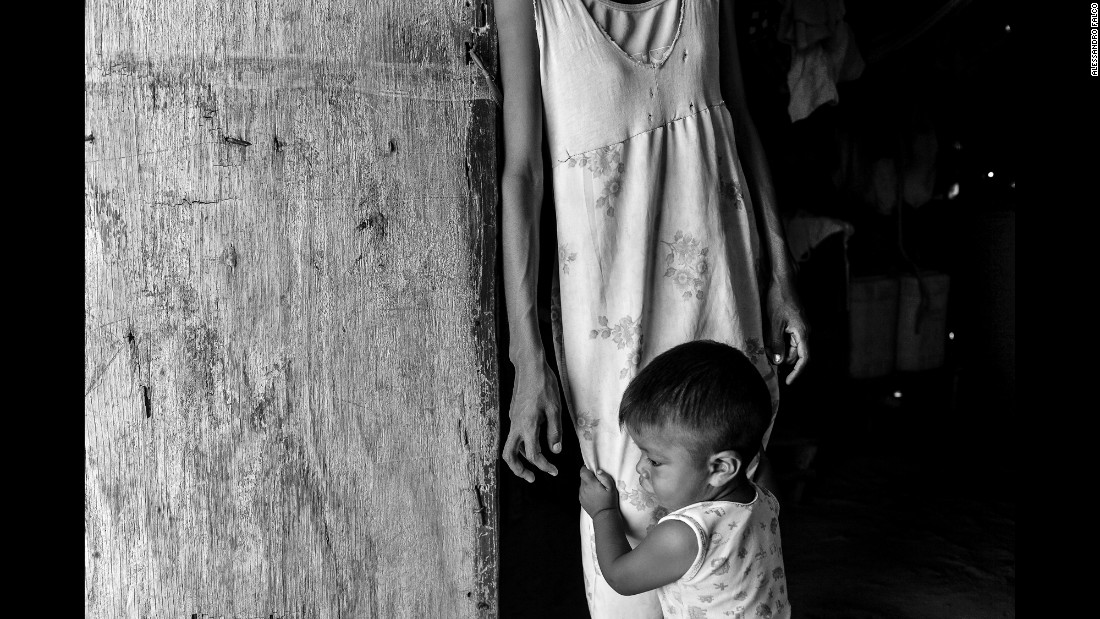
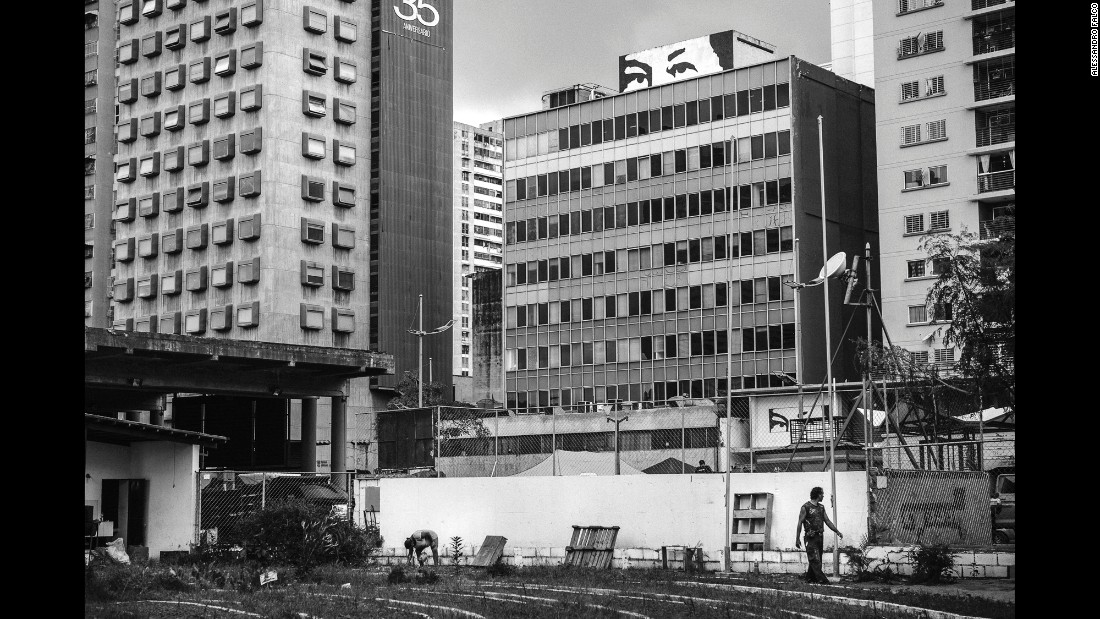
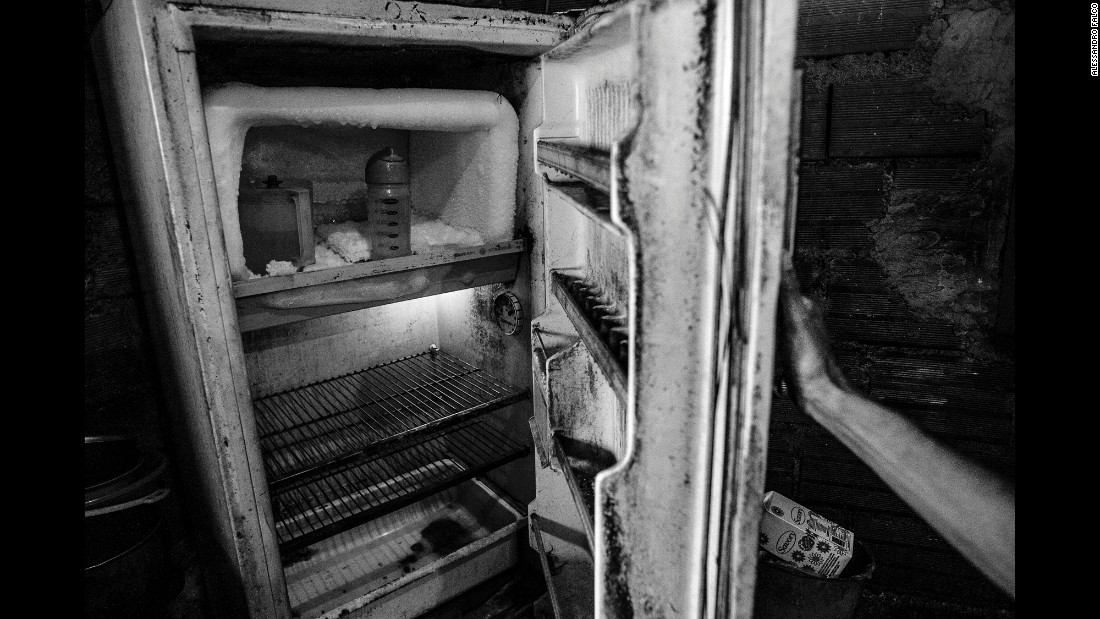
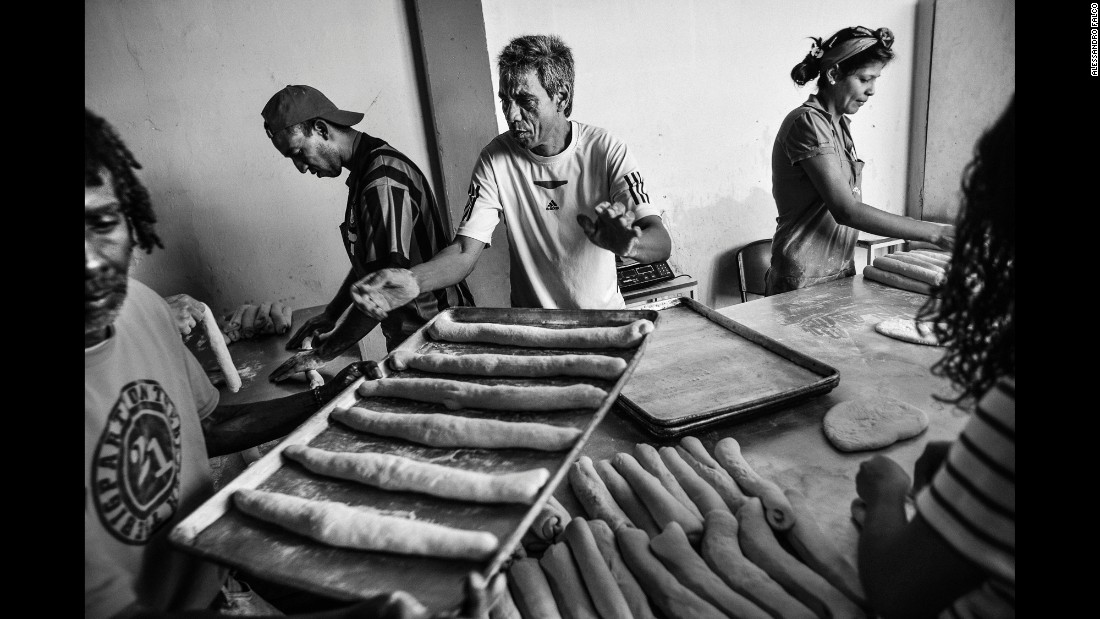
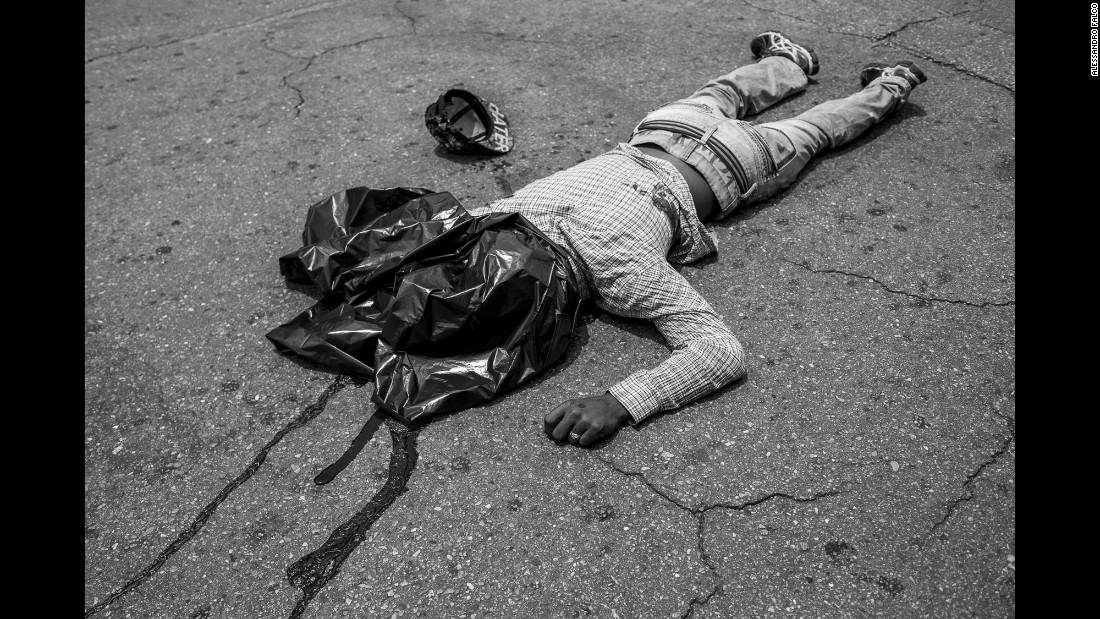
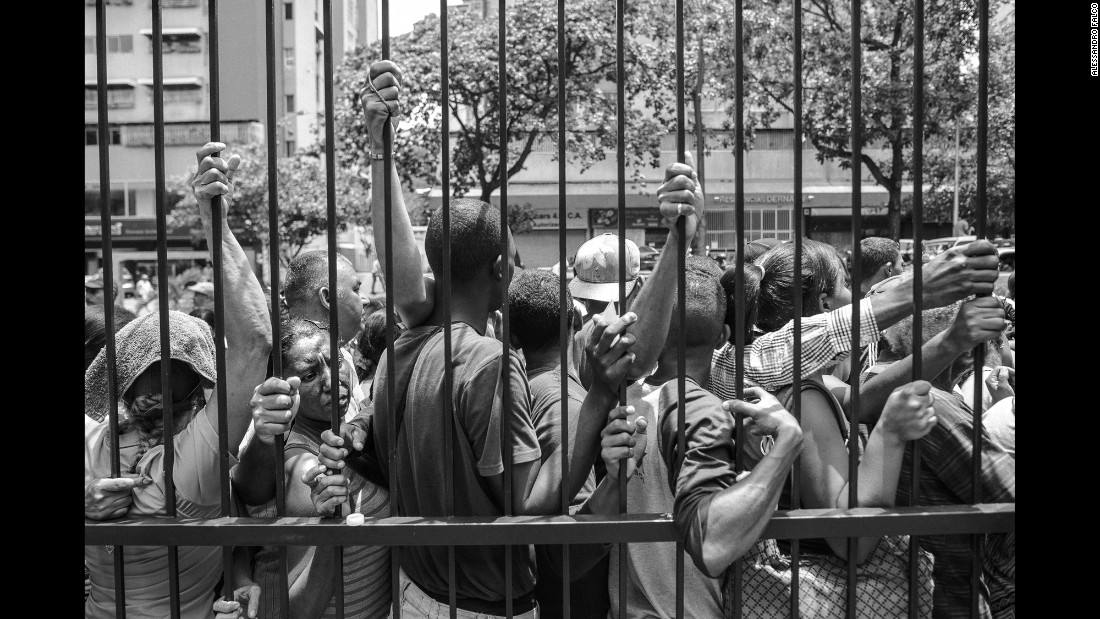
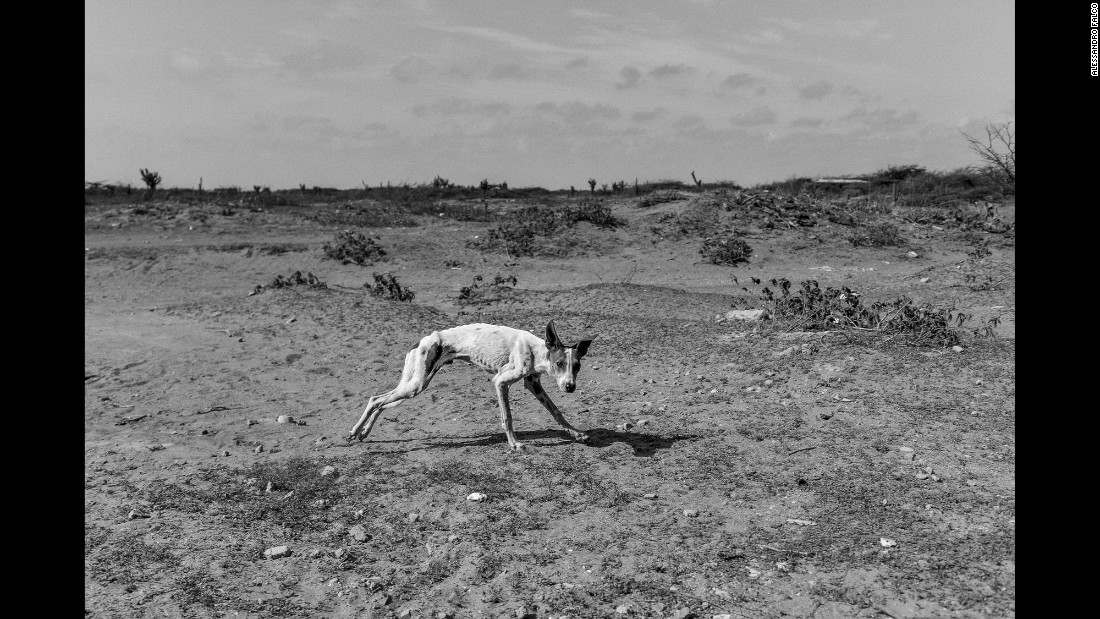
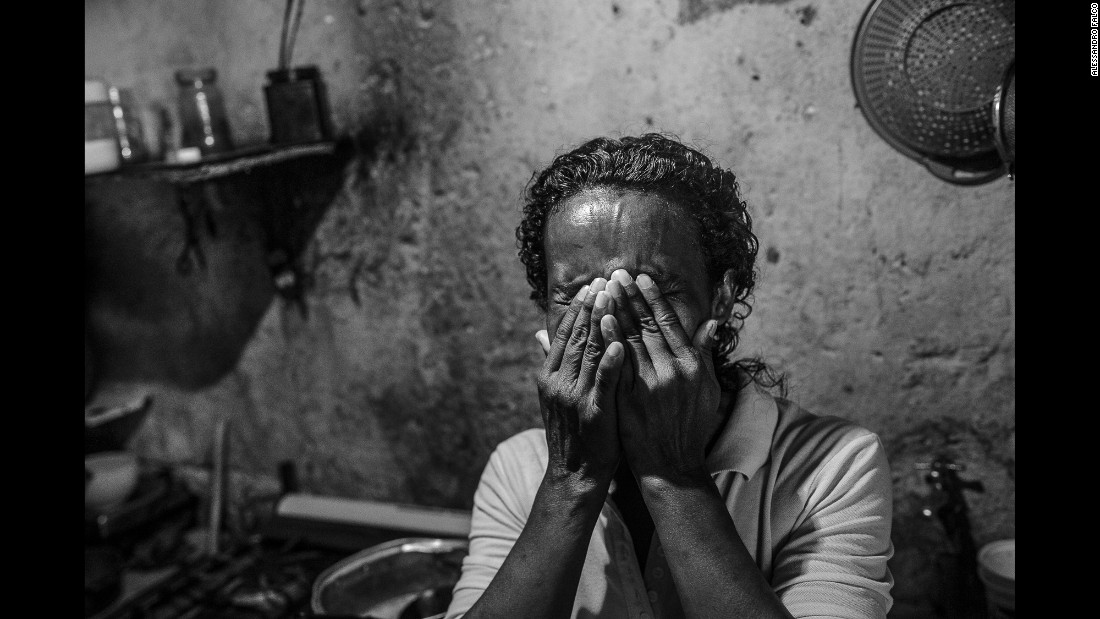
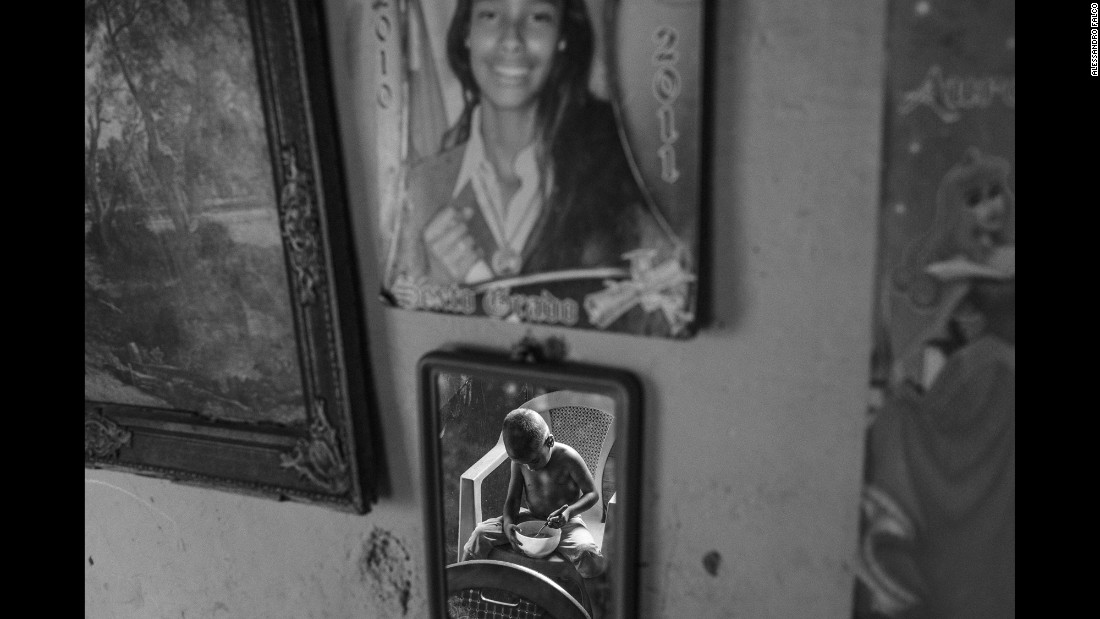
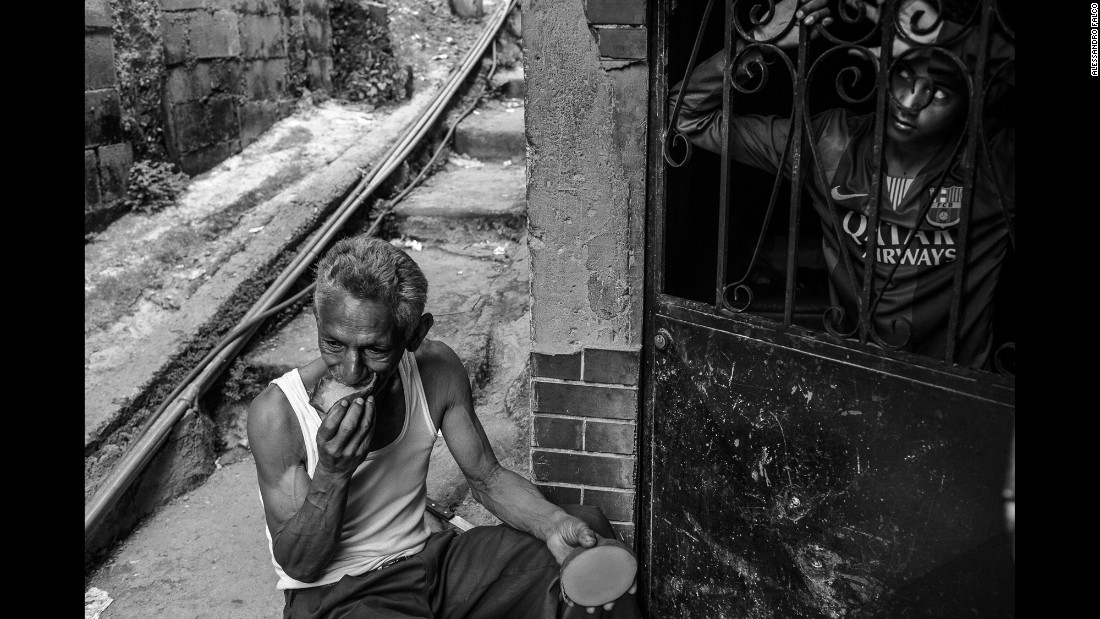
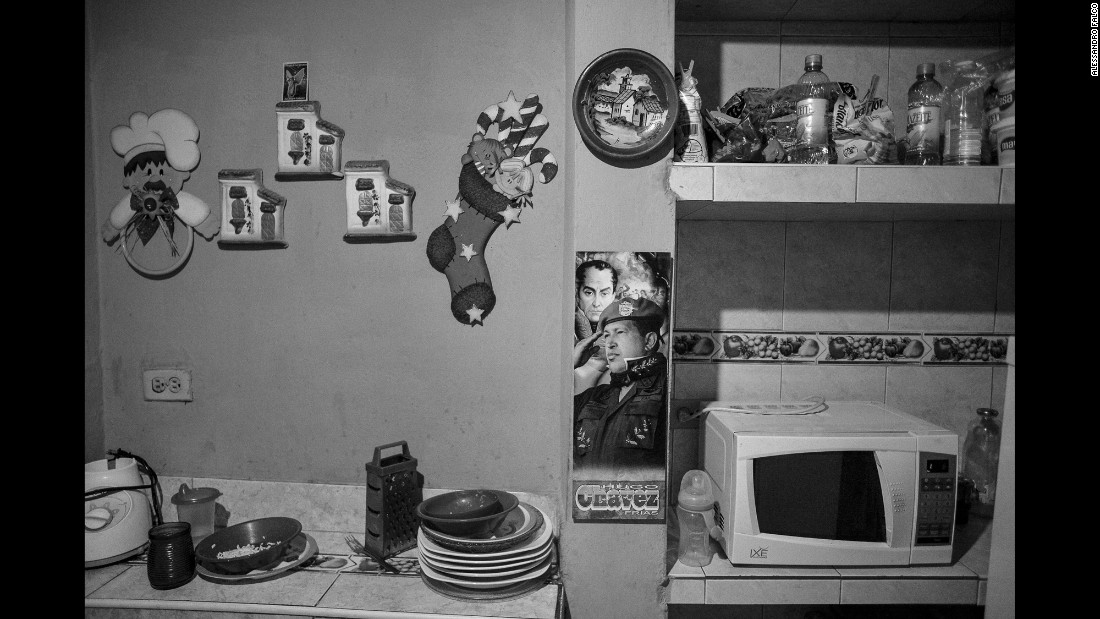
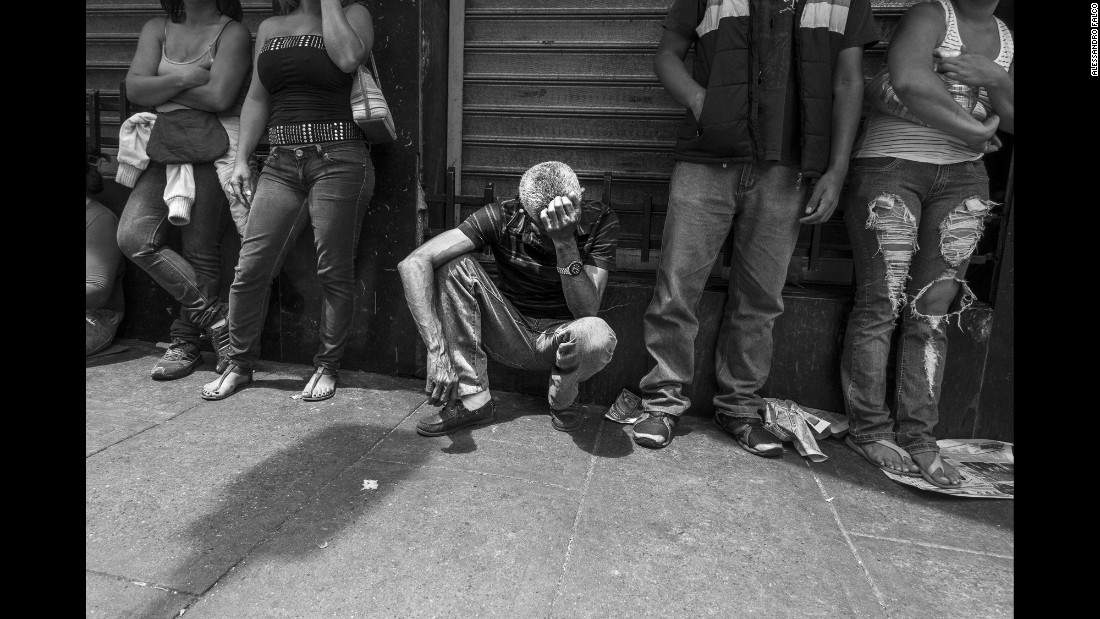
Alessandro Falco is a documentary photographer who splits most of his time between Italy and Brazil. Follow him on Facebook, Instagram and Twitter.













